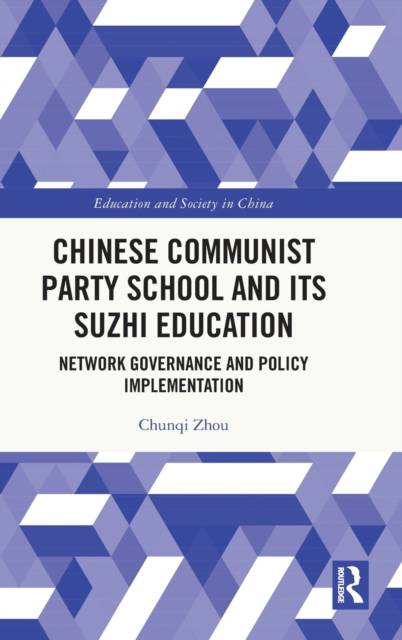
- Retrait gratuit dans votre magasin Club
- 7.000.000 titres dans notre catalogue
- Payer en toute sécurité
- Toujours un magasin près de chez vous
- Retrait gratuit dans votre magasin Club
- 7.000.0000 titres dans notre catalogue
- Payer en toute sécurité
- Toujours un magasin près de chez vous
Chinese Communist Party School and its Suzhi Education
Network Governance and Policy Implementation
Chunqi ZhouDescription
Zhou applies network governance theories to Chinese education and focuses on Chinese education policy implementation, particularly with the Chinese Communist Party Schools (CCPS). The CCPS is the institution which follows the Chinese Communist Party (CCP)'s ideas and decisions to educate key education leaders at all levels with different political purposes. In the Chinese education policymaking process, the CCP is the leading power which provides policy directions, but the education department is the main vehicle for the delivery of education policy.
Using document analysis and interviews, Zhou argues that an education policy implementation process can be successful from top to bottom level in cooperation with the education department. He further posits that formulating and implementing Chinese education policy can be characterised as a form of network governance, which coordinates actors' and stakeholders' motivation to comply with collective decisions in Chinese education implementation. The book offers fresh data for the study of policy networks in Chinese education, the study of CCPS and Chinese network governance.
This book will be of interest to scholars and postgraduate students studying Chinese education, comparative educational policy and comparative education research.
Spécifications
Parties prenantes
- Auteur(s) :
- Editeur:
Contenu
- Nombre de pages :
- 178
- Langue:
- Anglais
- Collection :
Caractéristiques
- EAN:
- 9781032344140
- Date de parution :
- 03-03-23
- Format:
- Livre relié
- Format numérique:
- Genaaid
- Dimensions :
- 156 mm x 234 mm
- Poids :
- 449 g

Les avis
Nous publions uniquement les avis qui respectent les conditions requises. Consultez nos conditions pour les avis.






